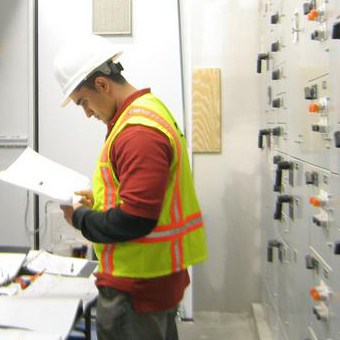Are engineers lazy? Some are and some aren’t. But there’s a type of laziness that’s actually super helpful for engineers in their daily work.
I know what you’re thinking—sounds crazy, right? You’d expect engineers, who design the planes we fly in, to be anything but lazy.
The secret sauce here is being selectively lazy. But before we jump into this awesome kind of laziness, let’s chat about the type of laziness that is definitely not cool. Google defines the not-so-great type of laziness as:
“The quality of being unwilling to work or use energy; idleness.”
The bad type of laziness

So, how does this crummy type of laziness show up in an engineering company?
Picture this: a task that should only take a few hours to finish ends up taking weeks. Now, why on earth does this happen?
Because an engineer is just too lazy to get their act together. They let the task sit there, staring them down, while they waste time surfing the web. Usually, this happens for one of these reasons:
- An engineer’s bad habits
- Poor motivation from lack of good management
- Lack of employee accountability
And believe me, this type of laziness drives everyone bananas. Let me share a personal story to give you a taste.
My experience with a lazy (bad type) engineer
I once asked a coworker to do a calculation for a project we were both working on. The calculation was insanely easy, nothing fancy. It should’ve taken 3 to 4 hours, tops.
He said he’d get it done by the end of the week. So, 3 days. No biggie.
But then, the week flew by and I got nothing. Another week came and went, and still zilch.
At this point, I was beyond frustrated. Three weeks had passed! What made it worse was that I was doing 95% of the work, while my colleague’s workload was lighter than a feather.
Fed up, I finally did the calculation myself. When I told him I’d finished his work, he sounded shocked. He said he was “almost done.”
Seriously? Almost done after 3 weeks?! I knew he was just bullshitting.
Sadly, you’ll find lazy people like this in every industry. Just do your best not to be that kind of lazy. You’ll drive your coworkers nuts, and you might even end up jobless.
Work output of employees versus company founders
Now, I want to draw a comparison that I often see in the workplace. Because sometimes, people expect too much from engineers who are just employees.
In most cases, when you’re running the show, you work your tail off more than anyone else. You go the extra mile because it’s your neck on the line. Plus, you get paid more.
As a boss, you have to deal with stuff like:
- Keeping the payroll going
- Growing the business or maintaining a steady flow of clients
- Handling constant business drama
- Managing liabilities
And in engineering, many founders still do technical work, too. So, you’re juggling a whole bunch of hats!
This naturally makes a business founder more invested in the company. As a result, they’re super-efficient in their work and don’t waste a single minute.
Understanding an employee’s work output
On the other hand, an employee might just do the bare minimum to collect their paycheck or move up in the company. After that, they clock out and head home.
But that doesn’t mean the employee is lazy. They’ve just adapted to their workplace environment. Their job is a means to pay the bills, and that’s about it.
In exchange, most employees earn significantly less than a company founder.
Now, let’s dive into the awesome side of laziness in engineering.
Filtering activities for maximum productivity
Let me tell you, striving to get the most done with the least amount of effort is where it’s at. It’s the heart and soul of outstanding engineering design. Just look at the never-ending quest for better energy efficiency: more machine output and less fuel consumption. This mindset is crucial for engineering projects too.
Sometimes, you just gotta say “no” to certain tasks. That way, you avoid redoing work and potentially compromising quality.
Working just for the sake of working is a losing battle. You’ll end up wasting precious hours and budget.
Sure, you might seem all occupied and stuff, but what’s the point? In the end, launching a subpar product or blowing the budget hurts everyone.
Over the years, I’ve noticed that most engineers get the importance of saying “no” to some tasks.

Important Note: Crazy work schedules often come from lousy planning. You didn’t plan right, and now you’re scrambling to finish your work.
In other words, if you’re running around trying to look busy, you might just have poor time management skills.
Spotting productive work in engineering projects
Picture this: you’ve got a project where you need a machine to output two figures. Option one is to sweat it out and try designing the machine from scratch.
Option two? Find two existing machines, each spitting out one of your desired figures. Then, your task is to figure out how to mesh the two machines together.
Obviously, option two is your best bet. You’ll have two tried-and-true machines to work with, and you won’t need to reinvent the wheel. All you’ve got to do is find the best machines for the job. That’s it.
So, it’s not about impressing others with how hard you work, head down, slaving away. ‘Cause in our example, the end result is a pricey, unproven machine. Talk about lousy engineering!
The necessity of proper project planning

Us engineers? We tend to overthink things. If we could, we’d mull over a problem for months past the deadline. We just want to plan for every possible hiccup.
I’m guilty of this too. I know it’s not always productive, and it drives business folks bonkers. Heck, it can drive me bonkers too.
But sometimes, long stretches of pondering are not only helpful, but necessary. When planning a design, the goal is to:
- Find the best design direction through the engineering creative process
- Keep the design within budget and on schedule, without sacrificing functionality
- Stick to the engineering code of ethics
From the outside, engineers who plan excessively might look like the wrong kind of lazy. I used to think that too when I first started out. I just wanted to dive right in.
But boy, did I learn my lesson. I was leading a pretty complex design, and I skimped on planning. Halfway through, I realized I had to start over. I torched a ton of the budget, and I had to pull some serious all-nighters to catch up.
This is one reason why introverts rock at engineering.
“Are engineers lazy?” wrap up
Some engineers are straight-up couch potatoes. Others? They’re lazy by design.
In the end, aim for more of the good kind of laziness. You can’t rush amazing engineering, and being lazy by design is a key trait of a 10x engineer.
So, what do you think? Are engineers the bad kind of lazy? Is the ability to slow down a design on purpose actually good engineering?

Author Bio: Koosha started Engineer Calcs in 2019 to help people better understand the engineering and construction industry, and to discuss various science and engineering-related topics to make people think. He has been working in the engineering and tech industry in California for well over 15 years now and is a licensed professional electrical engineer, and also has various entrepreneurial pursuits.
Koosha has an extensive background in the design and specification of electrical systems with areas of expertise including power generation, transmission, distribution, instrumentation and controls, and water distribution and pumping as well as alternative energy (wind, solar, geothermal, and storage).
Koosha is most interested in engineering innovations, the cosmos, sports, fitness, and our history and future.
